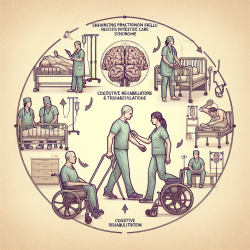Understanding the Link Between Food Insecurity and Mental Health Access
Food insecurity (FI) is a pressing issue in the United States, affecting millions of households and leading to adverse health outcomes. A recent study titled "Association between food insecurity and access to a mental health professional: cross-sectional analysis of NHANES 2007–2014" provides valuable insights into the relationship between FI and mental health service utilization. This study, which analyzed data from the National Health and Nutrition Examination Survey (NHANES), found that individuals experiencing FI were significantly more likely to have seen a mental health professional (MHP) in the past year compared to those who were food secure.
Key Findings and Implications
The study revealed that 13.9% of the participants were food insecure, and these individuals had higher odds of having seen a MHP in the preceding 12 months. This association persisted even after controlling for demographic and clinical variables, with an odds ratio of 1.32. This finding underscores the potential role of MHPs in identifying and addressing FI during mental health consultations.
Given the growing emphasis on addressing social determinants of health in healthcare settings, these findings suggest that mental health visits could serve as critical opportunities to screen for FI and provide necessary interventions. MHPs, due to their comprehensive social history assessments and multidisciplinary work environments, are well-positioned to address unmet social needs, including FI.
Practical Applications for Practitioners
- Screening for Food Insecurity: Incorporate brief, validated FI screening tools into routine mental health assessments. This can help identify patients who may benefit from additional support.
- Collaborative Care: Work alongside social workers and case managers to connect patients with local food resources and assistance programs, such as SNAP and WIC.
- Training and Resources: Ensure that MHPs are knowledgeable about available community resources and can guide patients effectively.
Encouraging Further Research
While the study provides significant insights, it also highlights the need for further research to understand the nuances of the FI and mental health relationship. Future studies could explore the impact of different mental health conditions on FI, assess the effectiveness of interventions in mental health settings, and investigate the role of other social determinants in exacerbating FI.
For practitioners, engaging in ongoing research and staying informed about the latest findings can enhance their ability to provide comprehensive care. By integrating research outcomes into practice, MHPs can play a pivotal role in mitigating the effects of FI on mental health.
To read the original research paper, please follow this link: Association between food insecurity and access to a mental health professional: cross-sectional analysis of NHANES 2007–2014.










